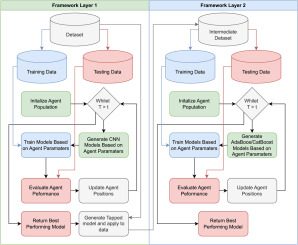Investing in the Metaverse: A Billion-Dollar Bet on Voice and Talent

Meta Platforms’ Bold AI Strategy: A Gamble on the Future of Technology
Meta Platforms is making waves in the tech industry with its ambitious quest for AI “superintelligence.” Over the last three years, the company has invested heavily in acquisitions, talent, and research and development, betting that innovations in voice interfaces, immersive metaverse experiences, and personalized AI assistants will shape the future landscape of technology. Investors are left pondering: Is this a visionary strategy or a perilous gamble?
Strategic Acquisitions: Securing the Future of AI and Voice
Meta’s approach begins with acquiring companies that enhance its foundational AI capabilities. A pivotal moment came with the $14.3 billion investment in Scale AI in 2023, which provided Meta with essential infrastructure for training its extensive language models, including the impressive 2-trillion-parameter Behemoth. This acquisition also secured a wealth of high-quality labeled data, crucial for developing advanced AI systems.
Voice technology is a primary focus for Meta, as evidenced by its reported acquisition of PlayAI (2024–2025) and the $2.5 billion purchase of Synthetica AI (2025). PlayAI specializes in voice replication technology, enabling Meta to create real-time, lifelike voice interactions—imagine WhatsApp calls where AI-generated voices closely mimic users’ tones and languages. Meanwhile, Synthetica’s generative AI capabilities support Meta’s ambitions in the metaverse by crafting dynamic virtual environments.
These initiatives are already taking shape in products like the Oakley Meta HSTN Smart Glasses, retailing at $499, which integrate voice commands, real-time translations, and augmented reality features. This hardware launch is not merely a gimmick; it represents a strategic move to establish dominance in the “next interface” before competitors like Apple and Google can catch up.
The Talent Acquisition Race: Attracting Top Minds for Innovation
Acquisitions alone won’t suffice for Meta; the company recognizes that its true advantage lies in attracting top talent. Meta has been on a recruitment spree, bringing in leading AI experts such as former SSI CEO Daniel Gross and ex-GitHub head Nat Friedman, while also enticing engineers from OpenAI and DeepMind. This influx of talent has accelerated advancements in conversational AI and generative models, despite some internal reports indicating challenges, such as delays with the Llama 4 project.
The message is clear: Meta is not just acquiring companies; it is also securing the intellectual capital behind the technology. This strategy contrasts sharply with competitors like Google, which has faced difficulties retaining its top AI researchers.
The Vision Ahead: Dominating Voice, metaverse, and Long-Term Growth
Meta envisions a future where AI-driven voice assistants and metaverse platforms become the standard for communication, commerce, and entertainment. The voice AI market is projected to grow at a remarkable 22% CAGR through 2030, indicating significant opportunities for Meta. Analysts predict that the company’s revenue could increase at a 12.3% CAGR through 2029, driven by hardware sales and AI-enhanced services, such as voice-based customer support on WhatsApp.
However, challenges are on the horizon. The EU’s AI Act, set to be implemented in June 2025, may impose restrictions on data usage and delay product launches. Meta has already earmarked $500 million for compliance, highlighting the potential impact of regulatory hurdles on profit margins.
Should Investors Embrace the Hype?
Meta’s aggressive push into AI represents a high-stakes bet, but the company’s robust financial position and early successes with hardware, like the Oakley glasses, suggest it is serious about its ambitions. Currently trading around $350, Meta’s stock is at a 52-week low, presenting a potential entry point for investors who believe in its long-term vision.
Buy Signal: Consider investing if Meta’s metaverse and voice initiatives achieve significant milestones, such as reaching over 100 million monthly active users for its AI assistant.
Hold/Wait Signal: Regulatory challenges or disappointing product launches, such as slow adoption of the Oakley glasses, could exert downward pressure on the stock.
In conclusion, Meta’s AI strategy is not merely about algorithms; it represents a comprehensive bet on voice technology, hardware, and the metaverse. For investors, the critical question remains whether they are prepared to navigate the volatility of a company striving to redefine the future of technology.







